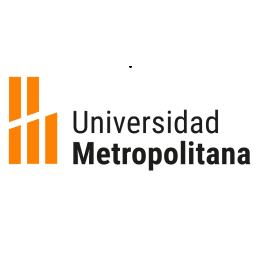The increasing number of students involved in international activities shows that a current goal of many higher education institutions is to promote student learning in international contexts, together with equipping teachers and staff with competencies to design innovative digital learning activities of international collaboration. The presentation will address the development of microcredentials, short-term learning experiences, such as a short course or training, that certify the students’ achievement of learning outcomes. Microcredentials represent a flexible, inclusive, short-term learning opportunity and a targeted way to help people develop the knowledge, skills, and competencies they need for personal and professional development.

The main aim of this proposal among the University of Turin and other universities is to collaborate in the co-design, co-production, and joint use of microcredentials.
The collaborative work will be developed by a teacher or a group of teachers at the University of Turin together with a teacher or a group of teachers, promoting collaboration among universities. This activity is also carried out by partners in the UNITA European university alliance that UNITO coordinates. This alliance involves several universities and associated partners from different countries in Europe: Portugal, Spain, France, Italy, Romania, Switzerland, and Ukraine. To support the design, development, and implementation of the online learning paths, there will be a call for applications to recruit fellows that will help teachers during the implementation of the microcredentials. Moreover, fellows and teachers will attend a training module to adopt the most up-to-date standards in digital education.
The framework is the project at the University of Turin “OPERA”: Open Program for Education Research and Activities. The project aims to (1) create synergies in the educational digital ecosystems, (2) promote collaboration with other universities and with other international partners, and (3) co-design, co-implement, and deliver COIL (Collaborative Online International Learning). Through the OPERA program, the University of Turin intends to promote Digital Education as a paradigm capable of responding to new educational needs (more modern teaching that improves the employability of graduates) and to address the challenges in education in the coming years. The OPERA Project has been and is vital to achieving the strategic priorities identified in the European Union’s Digital Education Action Plan 2021-27, and to facilitating the transformation and evolution to digital that education must make in the near future.

Microcredentials support students by helping them develop skills and knowledge in a more targeted way and facilitate teachers in developing competencies for teaching that are needed for educators who are new to these digital practices or who want to improve their skills. Teachers participating in this experience will improve their skills and thus provide in the future a better learning experience for their students in their home university, adding value to the educational offer. Students will benefit from the designed intercultural experiences that would broaden their cultural background. This collaboration is especially important now that international experiences are more common, often required by universities, and valued by employers. This collaboration is vital to address the objectives of the meeting: (1) the development of joint microcredentials will foster innovation in universities for their competitiveness and relevance, (2) the development of digital education competencies and outputs will promote the dissemination of innovative models of teaching and learning, (3) the training of teachers and staff on cutting-edge research in education and technology transfer. Most importantly, behind these objectives, international collaboration will be promoted.
The whole process of designing, developing, and implementing the online learning paths is starting in December 2023 and it is going to continue in all 2024. To express interest in receiving updates and news on this matter, higher education teachers, educators, and staff can fill out the form at the link: https://forms.gle/S5kfKBsbkk3pe36LA
Those who fill out the form will be contacted to start the co-design of microcredentials.
Responsible: Laura Scomparin / Marina Marchisio Conte
Institution: Università di Torino
Country: Italia
Email: laura.scomparin@unito.it / marina.marchisio@unito.it
Laura Scomparin es Post Doctorada en Derecho Penal, ha sido Vicerrectora de coordinación institucional, Directora y vicedirectora del Departamento de Derecho y Vicedecana de la Facultad de Ciencias Políticas. Investigadora principal para proyectos europeos: WOODIe. Whistleblowing open data impact. Una evaluación de implementación e impacto. Orden Europea de Investigación – Análisis Jurídico y Dilemas Prácticos de la Cooperación Internacional y CarePath (Programa Derechos, Igualdad y Ciudadanía de la Unión Europea (2014-2020).
Marina Marchisio es Profesora Titular de Matemáticas complementarias, delegada del Rector para el desarrollo e impulso de las estrategias de Educación Digital de la Universidad, Presidenta de la Escuela Universitaria Interdepartamental de Ciencias Estratégicas (SUISS), Subdirectora de Enseñanza del Departamento de Biotecnología Molecular y Ciencias de la Salud y Coordinadora del Doctorado en Ciencias de la Defensa y la Seguridad de la Università di Torino.
Columbus Association, 2023.









































